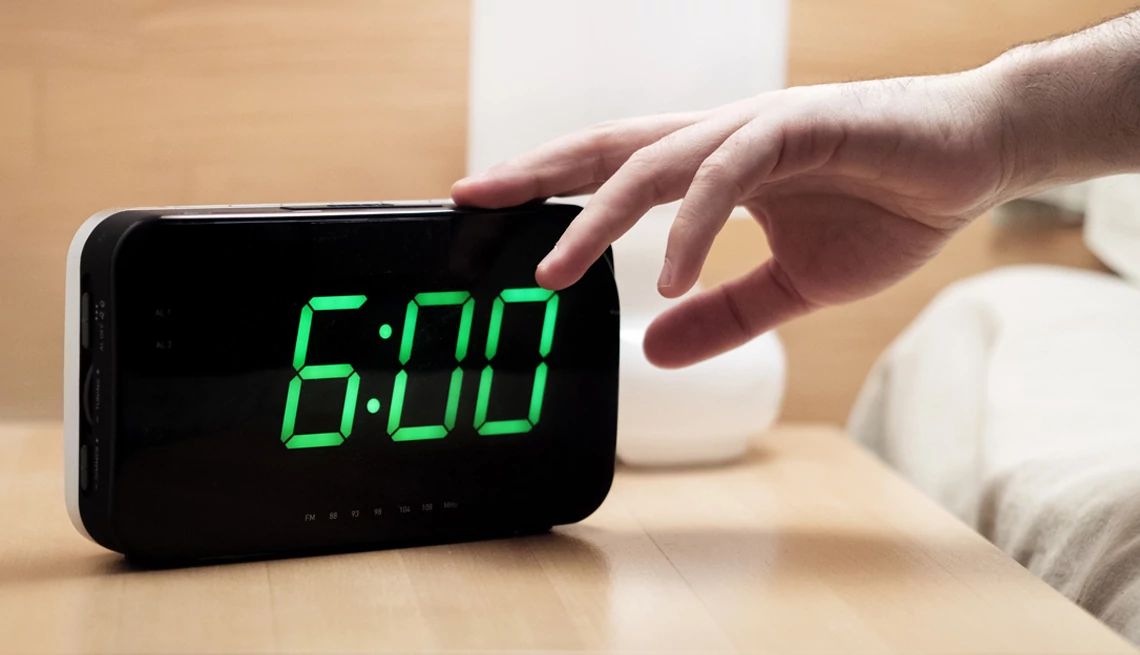AARP Hearing Center


The snooze button should be charged with false advertising: It sells us more sleep and a brighter day but often delivers worse sleep and a drowsier day. Still, we fall for it. According to one survey of 20,000 people who wore an activity-tracking watch, 50 percent hit snooze at least once every morning.
“Hitting snooze can be harmful, because the sleep you get between alarms is usually fragmented and low-quality. Instead of getting restful sleep, you’re dipping into lighter sleep stages, which can make you feel even groggier when you finally get up,” says Shelby Harris, a licensed clinical psychologist and director of sleep health at Sleepopolis. “Over time, this can lead to poor sleep hygiene and feeling more daytime sleepiness, which can have a negative impact on your overall health and energy levels.”
That’s why she and other sleep experts tend to encourage people to skip the snooze and just set the alarm for the time they actually need to get up. “If you do the math, you see, wow, because I am getting my alarms to go off for two hours, that shorts me on two hours of sleep,” says Alicia Roth, a clinical health psychologist at the Cleveland Clinic.
But breaking any habit is hard — especially one that’s performed while half-asleep. Here’s what pros recommend.
1. Understand your body’s needs
Not everyone needs to disrupt their snooze button routine. One 2023 study in the Journal of Sleep Research, for instance, found that the people drawn to snoozing tend to be younger or have later chronotypes, meaning they’re most alert later in the day. For them, snoozing doesn’t seem so harmful — only resulting in about six minutes of lost sleep, with no clear impact on morning sleepiness or mood.
Snoozing may even be beneficial in this group, the study authors write, since it can help overcome sleep inertia, or that disorienting, groggy period right after waking that makes rousing feel impossible. “Sleep inertia is this physical feeling of ‘I can’t physically get up,’ ” Roth says. “It’s not laziness. It’s not because you’re not motivated.” Typically, it passes in 30 to 60 minutes.
































































More From AARP
Healthy Sleep Advice
How to get the best shuteye of your lifeHealth Conditions Linked to Poor Sleep
Trouble sleeping can signal serious problemsWake Up More Refreshed With Our Smart Guide to Sleep
43 tips to help you fight those restless, endless nights and get the slumber you need
Recommended for You